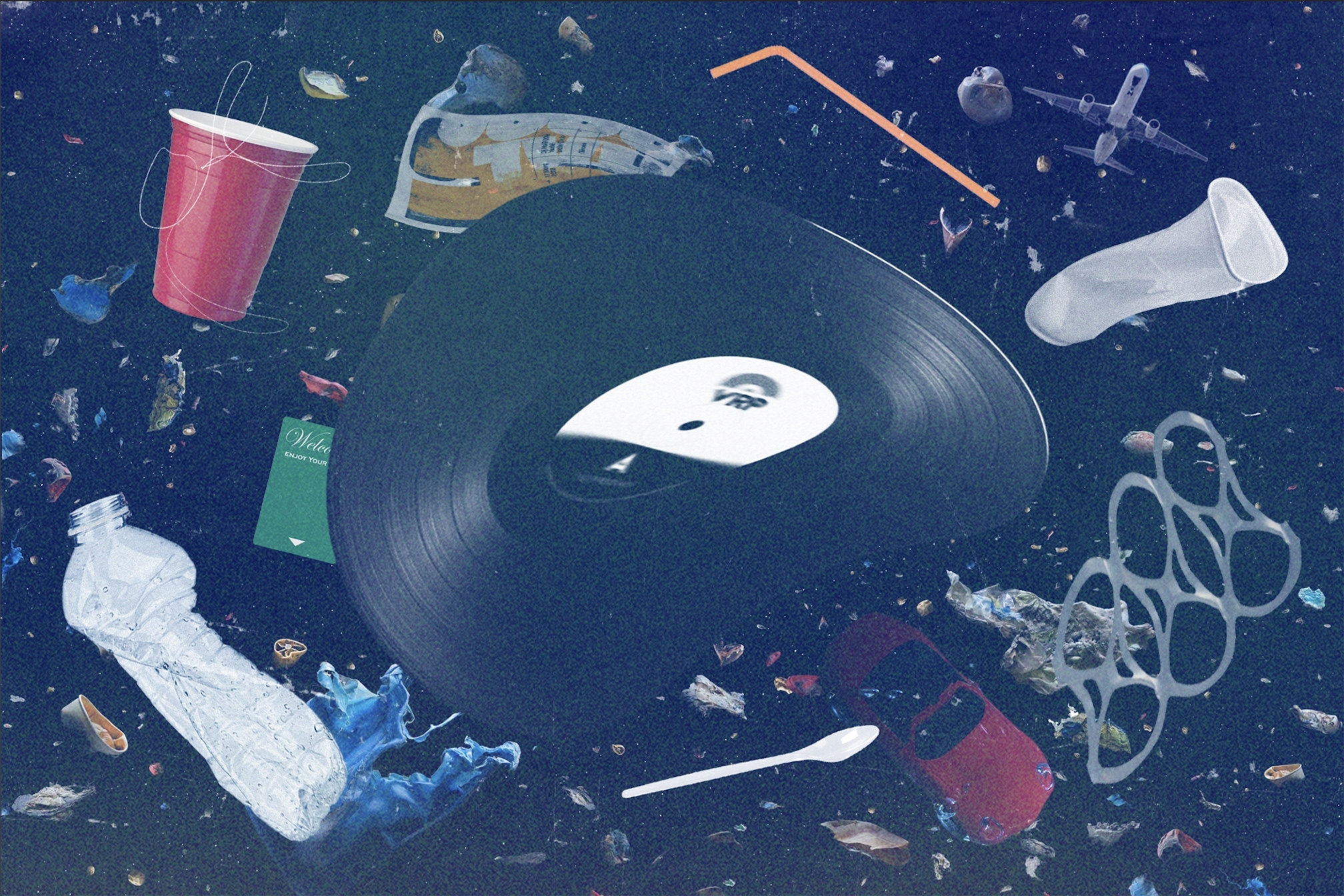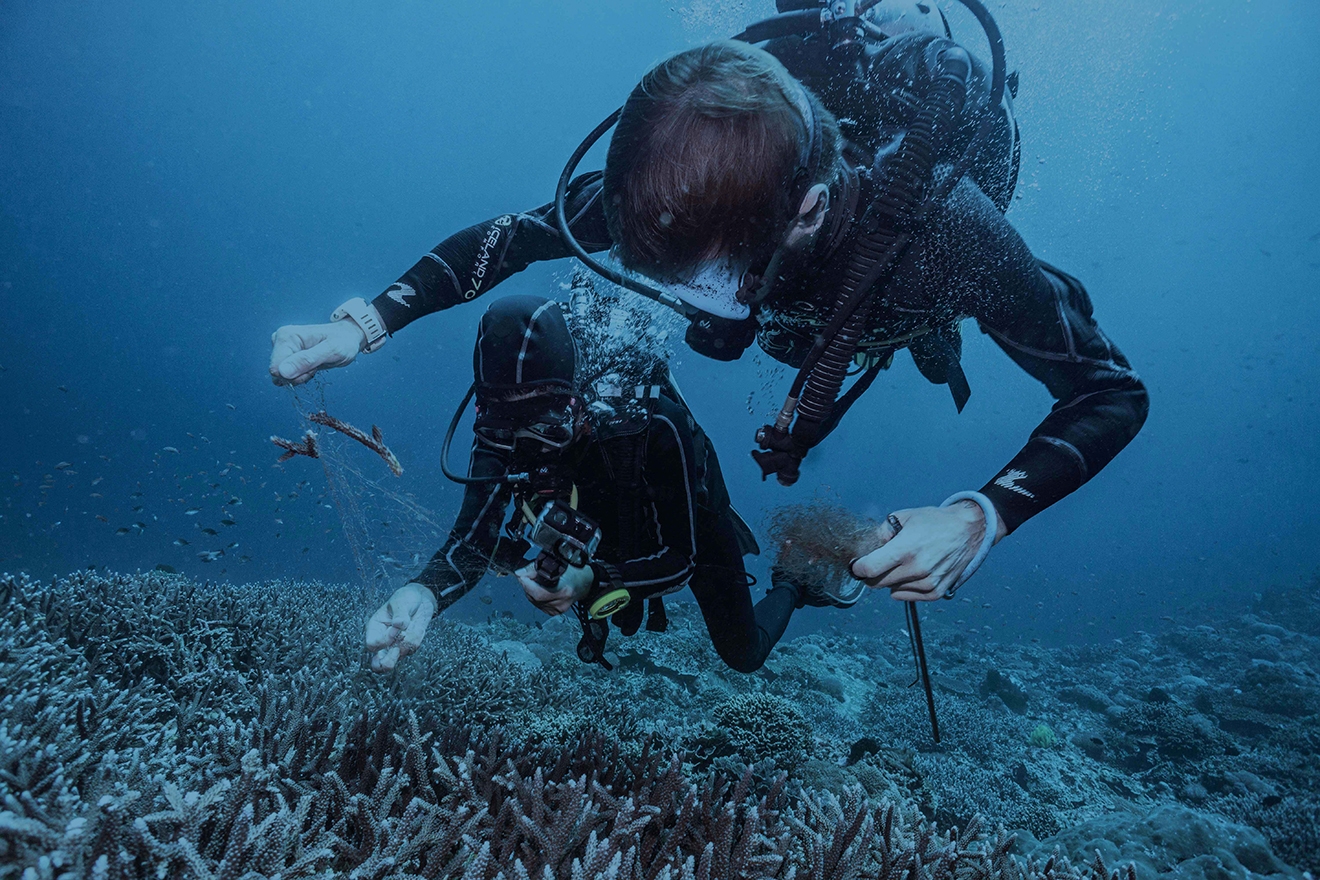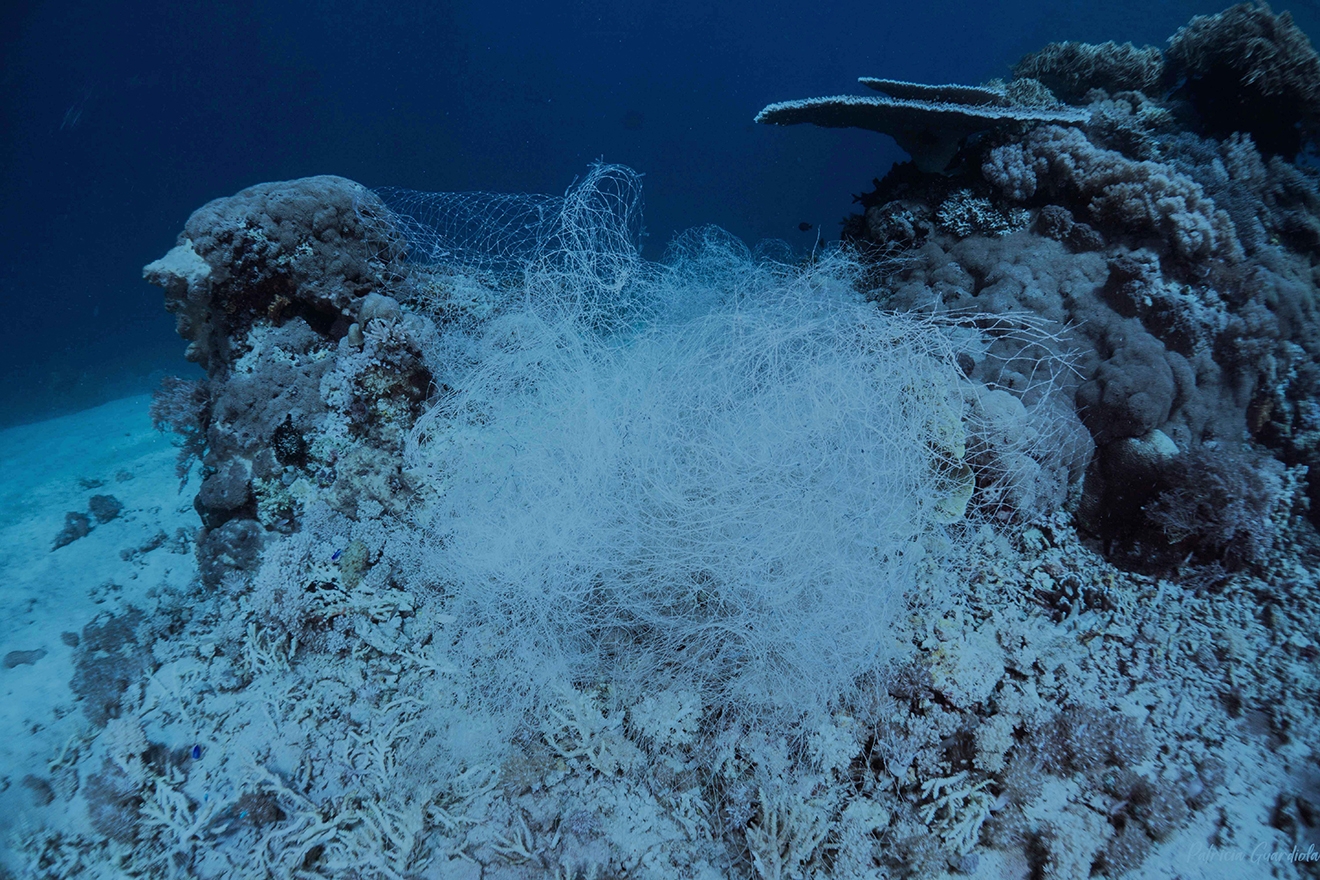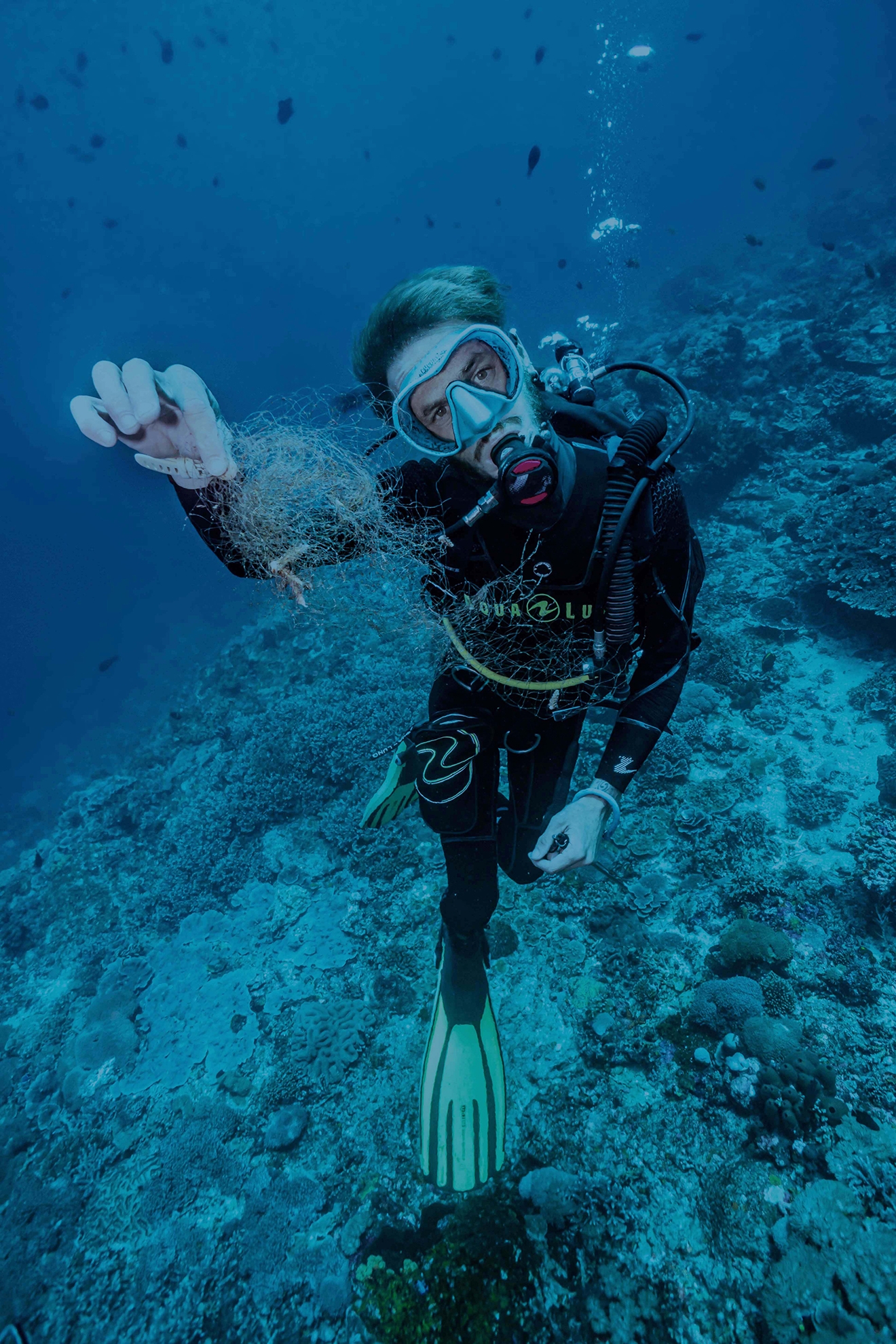 Green Room
Green Room
Sustainable riders: Your festival trash doesn’t belong in the ocean
DJs, promoters, event organisers, managers, tour managers, agents & music fans: this is for you
Experts believe that by 2050 there could be more plastic than fish in the sea. Others say that around eight million pieces of plastic pollution end up in the ocean every day, which when extrapolated, adds up to around eight million tons of plastic entering the ocean every year. So they say.
There is much debate as to how accurate these figures are; it’s difficult to be precise. But there's nothing to debate when you see it with your own eyes. You don’t need to believe in the facts when there are harrowing images of plastic pollution invading the internet every day. Or, if you’re like me and live in a part of the world where discarded plastic washes up on the very beach where you walk your dog every morning, you can’t just step around the IKEA ballroom of plastic that's become the beach in Bali during the rainy season. But it’s not just in the global south; the problem of plastic is a global crisis. No one is exempt, least of all the music industry.
Most music festivals have an outrageous ecological footprint if you really think about it. Essentially becoming temporary mini-cities where upwards of a hundred thousand (sometimes more!) people come to drink, dance, eat, shop, play and pee for anywhere from a two-day weekend to a full week, festival waste is one of the biggest and most visible environmental impacts that our cultural generation can be accountable for (next to travel, transport and cutting down on meat consumption). According to data collected by Bye Bye Plastic, a foundation lead by BLOND:ISH, the average one-day 50,000 person festival creates about 2.05 tons of general plastic waste (just in straws, cups and water bottles) per event. A Greener Festival estimates that in the UK, 23,500 tons of waste is generated annually by music festivals and another 53,000 tons by festivals in the US. To give you some perspective, 53,000 tons is equivalent to the weight of 450 blue whales.
Now digest this: trash can still be found on the grounds of the iconic Woodstock Festival that happened in 1969.

Despite what the slogans say, our small steps are not amounting to one big step. My reusable water bottle might never leave my hand but unless the thousands of other people at an event feel the same way, we’re just not going to get anywhere. But if we can reach the people upstairs — the owners, promoters, event organisers, managers, tour managers, agents and the artists (who have the loudest voices of all) — and implement change at the core, then we might actually see some real progress.
Recognising the importance of bringing sustainability to the forefront of the conversation, at the end of 2019 the Association for Electronic Music (AFEM) launched a green initiatives group with a mission "to advocate for environmentally sustainable practices to be adopted by all those involved in electronic music." From there, the members voted on what the priorities were and spun off a couple of subgroups. Up there at the top, Subgroup 2 is now dedicated to helping speed up the adoption of sustainable riders as mainstream practice in the industry. But what exactly is a sustainable rider?
“Green Riders are a useful tool to help artists and live events be more sustainable,” says Tristan Hunt, Regional Manager of AFEM. “As riders often encompass both an artist's technical and hospitality requirements they can have much influence; from reducing the power consumption of stage lighting and reducing waste backstage, through to ensuring more sustainable travel and accommodation options like trains, hybrid cars and eco-friendly hotels are used.”
The pandemic has given us time to think and reflect on how we go about our lives. A silver lining, if there is one, is how many industry figures made for-the-planet pledges, announced new green practices and sustainable initiatives for the year ahead. Brian Eno announced Earth Percent, a climate change initiative for the music industry which aims to raise $100 million from the industry collectively by 2030; Live Nation introduced the Green Nation Touring Program, which is developing industry-leading guidance and best practices to enhance the sustainability of concert tours; Ninja Tune and AIAIAI collaborated on a headphone made from recycled vinyl; global live events giant AEG Presents announced a new sustainability initiative called Climate Positive Touring; and several agencies, like Bullitt Agency, signed their artists up to a sustainable rider program and slapped it onto all of their bookings.
Green riders are perhaps the easiest place to start in the war against festival waste, because when (not if, but when) they become the industry standard, they will ultimately change SOPs at the conceptual stages of a festival. Kora, a Canadian DJ, producer and longtime pusher of plastic-free riders, believes that making sustainable riders the norm must start with the artists.
“Plastic-free and green riders must be mandatory as soon as possible,” he says. "I believe as artists we must not only send our green riders and expect the organisers to follow it but take the time to jump on a call to ask questions, explore solutions, and express how important it is for us and our planet. Is it the right venue? Do we really need fake candles for the decor? Can we offer a free drink to participants who bring their mugs? It's teamwork between the organisers, the artists, and the audience. It can be super fun and creative to find green alternatives, we just need to make it a priority!”

2050 is in 29 years. We’ll still be alive for that, and the plan is for sea life to make it until then and beyond too. We understand that the biggest change has to happen at a level above us, and needs to start with governments, legislators and Fortune 500s, but we, the music industry, can also make a huge dent in the overall environmental impact on our planet. Music is the strongest social connector and has the ability to create positive social movements. “Music is the connection, collective action is the solution," reads the Bye Bye Plastic Foundation website — and we couldn't agree more. More than selectors, artists are public figures with a huge amount of influence. Why not use that influence and be the catalyst for change?
Today, in honour of World Oceans Day, we’ve compiled a list of sustainable riders aimed at arming you, the music industry, with the resources and tools to get you started along a more sustainable path to reopening clubs and relaunching festivals. This is not just for artists; it’s for promoters, agents, event organisers, managers, tour managers, music fans: this is for you!

1. Eco-Rider by Bye Bye Plastic Foundation
The Eco-Rider is one of the OG plastic-free riders out there. It’s also one of the most simple. Created by Bye Bye Plastic Foundation, the idea famously came to BLOND:ISH while she was DJing at Warung Beachclub in Brazil with a mountain of plastic blocking her view of the sunset. She thought that if she could get DJs like herself to campaign clubs to stop using plastic by putting it on their hospitality riders and agreeing to it before agreeing to the booking, this would in turn create a plastic-free movement (and it has, just check the #PlasticFreeParty hashtag). And so the Eco-Rider was born, with somewhere around 1,500 artists committing to using it when it launched in December 2019.
The rider is simple; it’s just a one-page add-on that can be sent alongside a contract, technical and hospitality rider, so works well at not intimidating its recipient with too much information. A clear infographic asks the organiser to keep the DJ booth free from plastic straws, bottles, cups, and unnecessary plastic wraps and packagings.
Bye Bye Plastic co-founder Camille Guitteau is also working with AFEM on the Green Rider subgroup. What are they working on? On gathering data, assessing the needs of the industry and eventually creating a Gold Standard for sustainable rider together. "AFEM's work is essential because it will allow us to gather and power all initiatives under one umbrella. Bye Bye Plastic Foundation has always underlined there was no competition between the riders initiatives, but us now being part of AFEM ensures we collectivise the knowledge and the efforts, and all walk in the same direction."
"Once the progress will be ripe, we hope for it to become an industry-wide available tool that everyone can pick and use regardless of genre and position in the industry. The ultimate goal is to make the use of sustainable riders an easy process, empowering every stakeholder to not only state their environmental preferences but having those choices fulfilled."
Artists who use this rider: BLOND:ISH, Dubfire, Lauren Lane, Ida Engberg, Adam Beyer, Dubfire, Nicole Moudaber, Salomé Le Chat, Apache, Sam Feldt, Nick Monaco, Dennis Ferrer, Fatboy Slim, Danny Tenaglia, Ben Klock, Eats Everything, Nightmares on Wax, Tale of Us, Sven Väth & many more.
To download the Eco-Rider (and join the community), head here
2. Green Artist Rider by A Greener Festival
If you’re an event or festival organiser that has not yet heard of A Greener Festival (AGF), allow us to humbly introduce you. AGF is a not-for-profit company that is committed to helping events, festivals and venues around the world become more sustainable and reduce their environmental impacts. They are pioneers in event sustainability, with their first research taking place in 2005. Now, AGF provides certification, training, expertise and facilitates the exchange of best practices. Amid consultancy, research, initiatives, education, training and green activation, their website is home to a wealth of information and their rider(s) echo that.
AGF has two riders to download: one for artists and another for festivals which better serves as a guide on how to green your own machine.
The Green Artist Rider is a one-sheet (although it’s really two pages) that gives recommendations in 10 areas: plastic, water, recycling, hospitality rider requirements, how to reduce food waste, ethically sourced towels, paper (printing), accommodations, transport and energy usage.
To download the Green Artist Rider, head here
The Green Rider is a 6-page document that could also be adopted by a festival looking for tips on how to implement more green practices into their operations. From offsetting carbon emissions to communicating green policies with audiences to eliminating risks of pollution and switching to renewable energy sources, this rider takes a deeper dive into sustainable solutions for event organisers while keeping the language easy and accessible enough for the average person to digest.
Artists who use this rider: AGF partnered with Paradigm Agency (formerly Coda) to develop this Green Artist Rider, which recommends to their artists to use it.
The download the Green Rider, head here
3. Greener Touring by United Independent Music Agencies (UIMA)
The United Independent Music Agencies (UIMA) is a coalition of European booking agencies that was founded in 2020 with the aim of reducing the music industry’s carbon footprint. More than 1,000 acts are represented by UIMA in Europe and worldwide, who before the pandemic played over 15,000 shows yearly and took 18,400 flights in doing so. UIMA found that of these flights, 7,500 were less than 750km in distance and had the potential to be replaced by greener alternatives. By making this choice, UIMA found that their artists could reduce their CO2 emissions by 80% per travelled kilometre, resulting in a 10% reduction of the total flight emissions compared to travel in 2019.
In April of 2021, UIMA announced the Green Rider initiative which focuses on greener touring. The rider is organised into three categories — hospitality, travel and transport — and recommends the use of reusable items as well as gives advice on minimising air travel, when to opt for trains, how to establish routing corridors, how to handle buy-outs for meals and where to book hotels, right down to recommending a no-idling policy for all vehicles. The rider is three pages long and easy to digest (even if skimming) if the recipient takes the time to look through it.
The Green Rider is a part of a Green Charter, a larger blueprint that the coalition is working towards, which includes other initiatives like cloud services on green server parks and an EU artist pass modelled after the Interrail Global Pass.
Artists who use this rider: UIMA includes agencies such as Octopus Agents, AD, Meanwhile and We Are E. Together, these agencies represent more than 500 artists, including Circle Of Live, Steve Rachmad, DJ Nobu, Job Jobse and Nastia.
To download the Green Rider, head here
4. The Blue Rider by Oceanic Global
Oceanic Global's mission is to inspire us to care deeply for the ocean and provides solutions to protect it. The Oceanic Standard (TOS) Music Industry Edition launched at the International Music Summit (IMS) in 2019 as a way for the music industry to participate in that mission, and is a guide for musicians to incorporate sustainable practices into their careers. It’s really a step-by-step introduction to things like carbon offsetting, communication hacks when it comes to spreading awareness and advice on how to engage venues to implement sustainable operating practices.
Alongside this, exactly one year ago the organisation launched a Blue Rider which looks to remove single-use items like straws, cups, waxed coasters, drink stoppers, coffee cups and lids, plates and bowls, utensils and bags from green rooms, stages, DJ booths and any backstage area, and recommends replacing them with TOS-approved alternatives. The one-page rider can be directly sent alongside an artist's existing contract, technical and hospitality riders and hopes to encourage promoters and venues to join the movement and set a new standard of sustainability within the music industry.
Artists who use this rider: Lee Burridge, Bedouin and Solomun are amongst the artists who are ambassadors of the Blue Rider. Nightmares on Wax has also partnered with Oceanic Global, turning his Shape The Future tour strawless everywhere he went (let that inspire you!). In addition to that, Oceanic Global’s Blue Rider was used by all artists at Glastonbury Festival's Gas Tower stage in 2019, which was a world-first stage built from 100% upcycled marine plastic pollution. The line-up of artists using the Blue Rider included Rob Da Bank, Archie Hamilton, Bicep, Sub Focus x Dimension, and My Nu Leng x Zinc x Redlight back to back. Oceanic Global also partners with UROK Management, which looks after big names like Liam Gallagher, and Whisper Not Agency, whose roster includes Moses Boyd, The Comet Is Coming, Ezra Collective, Chassol, Acid Arab and more.
Download the Blue Rider here
Cover design by Sally Lindsell, photography by Patricia Guardiola


